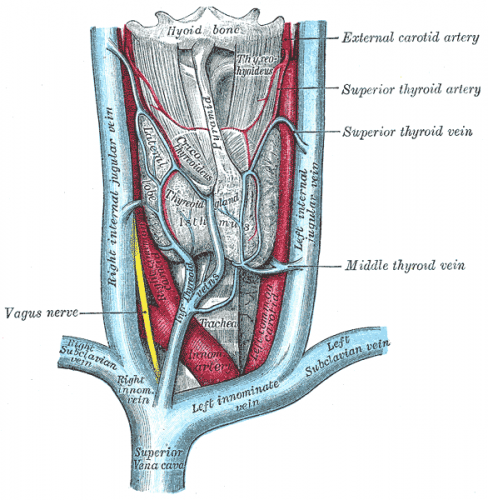Mailbag Q: How Can I Boost My Metabolism?

Tired of being tired? Time to take stock of your metabolism.
Q: I am a busy 38 year-old mother of 2 who works part time. I have been struggling with feeling sluggish and tired for months, or maybe years? I’m not sure, I just always wake up tired and need coffee right away just to function, and usually have to have some more later in the day since I ‘crash’ around 3 pm. I ‘m gaining more and more weight and am too tired to exercise. I hadn’t changed my diet or anything so I had a thyroid evaluation last Spring and according to my doctor, everything is “normal”. I am so frustrated and tired of being tired! How can I increase my metabolism?
Thanks,
Jennifer T.
A:
Sorry to hear about the difficulty you’ve been having. When every day becomes a battle between you and your fatigue it really undermines the quality of life.
When it comes to increasing your metabolism, there are four crucial areas to examine.
The term ‘metabolism’ gets thrown around a lot so that may be a good place to start. “Metabolism” is often used interchangeably with the term “energy”. Although the energy levels you experience relate to your metabolism, they’re not quite the same thing. Metabolism is a collective term, and refers to all the functions and processes in your body taken as a whole. As metabolism increases, the activity of all cells increases, along with their consumption of calories and nutrients, and all processes like digestion, respiration, energy production, fat burning and heat production. As metabolism decreases, everything “slows down” including the production of energy and the consumption of nutrients and calories. So that’s why slow metabolisms are associated with low energy and easy weight gain, just as high metabolisms are associated with high energy and stable or even declining body weight.
Just as the terms don’t mean the same thing, not everyone who lacks energy has a metabolic problem per se. A slow or slowing metabolism is also associated with other changes too, such as a tendency to be cold or slow bowel function. You can also look into taking your basal body temperature each morning as way of assessing your metabolic status. That information will be useful to you and your doctor as you determine the extent to which your fatigue is a metabolic problem, simply the result of lifestyle factors, or both.
Now to address your question. To boost your metabolism, the first option is a stimulant like the caffeine in coffee. That will increase your metabolism temporarily, but as you’ve found, only temporarily and is therefore not a good long-term solution. Overuse of stimulants creates a vicious cycle of dependence and ever-diminishing energizing effects. Yet tolerance to the side-effects such as insomnia develops much more slowly. So you can quickly get to the point where you haven’t slept well, so you need to use stimulants during the day, in ever increasing amounts, such that you don’t sleep well the following night and the whole pattern repeats.
This is a very common scenario but doesn’t represent a problem with metabolism, per se, it’s a problem of overusing stimulants and chronically poor sleep. If you really want to turn this around, you will need to cut back on or, ideally, eliminate caffeine altogether to get your metabolism back to its stimulant-free baseline. Gradually cut back on the coffee over the course of 2-3 weeks, to the point where you don’t drink any. It’s a leap of faith, and those first few days will be difficult, but your energy will return and this is a necessary step towards increasing your metabolism for the long term and reclaiming 100% of your ‘natural’ energy. At some point down the road, you should be able to re-introduce it and use coffee or other stimulants but on an occasional, limited basis.

Cut down on coffee to break the cycle of dependence and ever-diminishing benefits.
Second, there is the question of thyroid hormone status or whether there is a more significant medical cause for your sluggish metabolism and low energy. The thyroid is a gland located in the neck where it produces hormones that control metabolism and other functions. Among all the different factors that affect metabolism, thyroid hormones play the most central and fundamental role. So it was wise to have that evaluated by your doctor. But there are several types of tests and measurements used to measure thyroid function and no consensus about which is the best way. It has been suggested that there are some persons who are “sub-clinically” hypothyroid, that is, their test results don’t fit the clinical definition or rise to the clinical threshold of hypothyroidism, but functionally and in a de facto sense , they are hypothyroid. So you may want to seek out a second opinion or perhaps a physician who specializes in thyroid issues.

The thyroid gland is the source of thyroid hormones that support a healthy metabolism
If it turns out that you need supplemental thyroid hormones, you and your doctor have several options to look at. And as replacement hormones go, thyroid hormones are among the best-tolerated. Many many people have been using supplemental thyroid hormones for decades without any serious problems.
Third, there are nutritional factors. There are specific nutrients that the thyroid gland needs to function at its full capacity. Most familiar is the mineral iodine, but magnesium, B-6, tyrosine and others are all important. Insufficient amounts of any of these could compromise thyroid function. Rather than try to determine which nutrient you may be lacking, it’s better to use one of the many multi-ingredient thyroid formulas that essentially cover all the nutritional bases in one fell swoop. Take such a product consistently just as directed and give it at least a month before taking stock of its benefits or lack of benefits.

Thyroid formulas like this one cover all the thyroid-critical nutritional bases with just a single product.
Finally, there is the inescapable issue of physical activity. Not just exercise, but overall physical activity. Your body’s metabolism and energy production are continually recalibrating themselves to the bare minimum level needed to support your current activity level. So the more active you are, the more you boost metabolism and energy production, and vice-versa. Ironically, you have to burn energy to create more energy. If you have a hard time getting the ball rolling, you can always use a preworkout formula or energy drink before exercise, but only in that context.
You may also want to have a look our Top Ten Ways to Increase Energy article.
We wish there was a quicker or easier way to reclaim your energy and metabolism, but unfortunately there isn’t. On the other hand, if you approach this as a lifestyle change and take all of these facors into account, you shouldn’t have to wait long before seeing some results.



